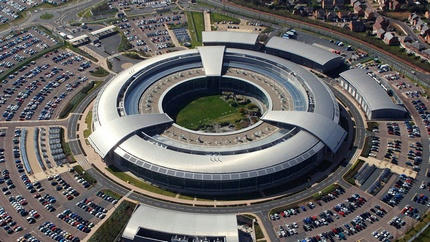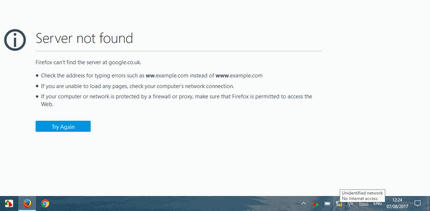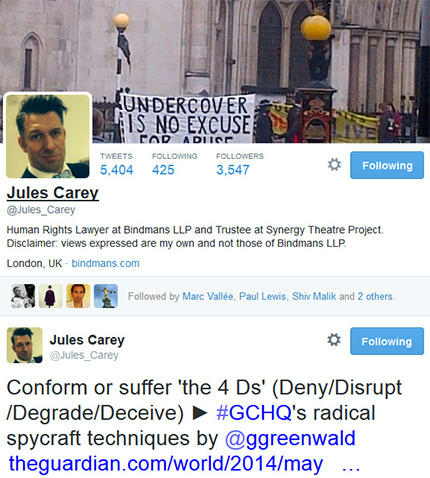One of two laptops I work on has been removed from the internet. Declan's two laptops are working fine (WITH DOUBLE UPDATE 7/8/2017)
Re: Internet cuts since 26 May 2017
From my earlier blog post's Update 6 August (7.35pm):
"And it's not just Facebook blocks, blocks on public access to our Church and State website and the daily targeting to fluctuating degrees of category pages throughout the site that Declan and I are dealing with these days. We have also been dealing with Internet cuts since 26 May. See my blog post of 21 June, Internet cuts: We pay £65 per month for BT Infinity but feel we are in a race against time to stay online (WITH UPDATE 6/8/2017 RE: 116th Internet cut since 26 May 2017)."
We had to suspend work on our Church and State website on 15 June after 4 internet cuts in one night. With a then unprecedented 6 internet cuts on 6 July; 6 cuts on 22 July; 6 cuts on 4 August; 5 cuts yesterday; 4 cuts so far today (as of 6 August at 7.35pm).
113th 6 August 2017, 12.46pm
114th 6 August 2017, 2.35pm
115th 6 August 2017, 3.50pm
116th 6 August 2017, 5.02pm
The War on Free Expression
From my earlier blog post's Update 6 August (7.35pm):
"And it's not just Facebook blocks, blocks on public access to our Church and State website and the daily targeting to fluctuating degrees of category pages throughout the site that Declan and I are dealing with these days. We have also been dealing with Internet cuts since 26 May. See my blog post of 21 June, Internet cuts: We pay £65 per month for BT Infinity but feel we are in a race against time to stay online (WITH UPDATE 6/8/2017 RE: 116th Internet cut since 26 May 2017)."
We had to suspend work on our Church and State website on 15 June after 4 internet cuts in one night. With a then unprecedented 6 internet cuts on 6 July; 6 cuts on 22 July; 6 cuts on 4 August; 5 cuts yesterday; 4 cuts so far today (as of 6 August at 7.35pm).
113th 6 August 2017, 12.46pm
114th 6 August 2017, 2.35pm
115th 6 August 2017, 3.50pm
116th 6 August 2017, 5.02pm
The War on Free Expression

UK Government Communications Headquarters (GCHQ)
Since I woke up this morning, I have had no access to the internet on one of two of my laptops. Declan's two laptops are working fine. The worst attack of this sort that we have experienced to date was in September 2016; see my blog post of 22 September 2016, All three of our laptops are targeted in an unprecedented attack: I have to use the deep web Tor Browser to post on Facebook (VIDEO). I am currently developing my Howard Bloom page. Bloom has been called "next in a lineage of seminal thinkers that includes Newton, Darwin, Einstein, [and] Freud" by Britain’s Channel4 TV, "the next Stephen Hawking" by Gear Magazine, and "The Buckminster Fuller and Arthur C. Clarke of the new millennium" by Buckminster Fuller’s archivist.

We are once again reminded of the removal of our flat door in 2012.
Re: Removal of our flat door
Paragraph 23(ii) of Declan's updated complaint to the United Nations under Article 19 (freedom of expression) of the International Covenant on Civil and Political Rights.
On 21 August 2012, Ms McKenzie signed an undertaking to the County Court promising not to harass the Applicant and his wife following her builder’s removal of the door to their flat (see Annex 9, p. 31). The Independent Police Complaints Commission later upheld the Applicant’s appeal against the police investigation of the incident "on information only", stating that "no further action is required by the force in this instance".
Paragraph 23(ii) of Declan's updated complaint to the United Nations under Article 19 (freedom of expression) of the International Covenant on Civil and Political Rights.
On 21 August 2012, Ms McKenzie signed an undertaking to the County Court promising not to harass the Applicant and his wife following her builder’s removal of the door to their flat (see Annex 9, p. 31). The Independent Police Complaints Commission later upheld the Applicant’s appeal against the police investigation of the incident "on information only", stating that "no further action is required by the force in this instance".

UPDATE 7 August (1.20pm): We are still reduced to three laptops. We have absolutely no idea where this attack is going, but for the time being I will be updating this blog post every couple of hours or so. My latest Howard Bloom extraordinaire: The Struggle For Europe.
UPDATE 7 August (2.42pm): I have my laptop back! At the moment Declan has two laptops connected to the internet and so do I.

Re: Government Communications Headquarters (GCHQ)
Paragraph 12 of Declan's updated complaint to the United Nations under Article 19 (freedom of expression) of the International Covenant on Civil and Political Rights.
12. It is important to underscore that the discriminatory surveillance suffered by the Applicant and his wife is not an isolated event. Rather, it is emblematic of a larger pattern of surveillance by law enforcement officials in the UK that has been well-documented by international and domestic human rights bodies. For example, GCHQ's Joint Threat Research Intelligence Group (JTRIG) specialises in the "4 D's": deny, disrupt, degrade, deceive. It has been branded by the press as the spy agency's "deception unit". Though its existence was secret until 2014, JTRIG has developed a distinctive profile in the public understanding, after documents from NSA whistleblower Edward Snowden revealed that the unit had engaged in "dirty tricks" like deploying sexual "honey traps" designed to discredit targets, launching denial-of-service attacks to shut down Internet chat rooms, pushing veiled propaganda onto social networks and generally warping discourse online. Previous reporting on GCHQ established its focus on what it regards as political radicalism. Beyond JTRIG's targeting of Anonymous, other parts of GCHQ targeted political activists and groups deemed to be "radical", even monitoring human rights NGOs. The President of the London-based Privacy International, Simon Davies, asks: "If spying on human rights NGOs isn't off limits for GCHQ, then what is?"
Paragraph 12 of Declan's updated complaint to the United Nations under Article 19 (freedom of expression) of the International Covenant on Civil and Political Rights.
12. It is important to underscore that the discriminatory surveillance suffered by the Applicant and his wife is not an isolated event. Rather, it is emblematic of a larger pattern of surveillance by law enforcement officials in the UK that has been well-documented by international and domestic human rights bodies. For example, GCHQ's Joint Threat Research Intelligence Group (JTRIG) specialises in the "4 D's": deny, disrupt, degrade, deceive. It has been branded by the press as the spy agency's "deception unit". Though its existence was secret until 2014, JTRIG has developed a distinctive profile in the public understanding, after documents from NSA whistleblower Edward Snowden revealed that the unit had engaged in "dirty tricks" like deploying sexual "honey traps" designed to discredit targets, launching denial-of-service attacks to shut down Internet chat rooms, pushing veiled propaganda onto social networks and generally warping discourse online. Previous reporting on GCHQ established its focus on what it regards as political radicalism. Beyond JTRIG's targeting of Anonymous, other parts of GCHQ targeted political activists and groups deemed to be "radical", even monitoring human rights NGOs. The President of the London-based Privacy International, Simon Davies, asks: "If spying on human rights NGOs isn't off limits for GCHQ, then what is?"
From My Picks:
9 June: Ministry of Justice: Complaint to the Lord Chancellor and Secretary of State for Justice against the County Court at Central London, Royal Courts of Justice (WITH UPDATE - Day 13 21/6/2017)
'Let me recommend an important web site churchandstate.org.uk. Operating out of London this well-designed and exciting web site covers church-state, population, climate change and other issues. Check it out.' Edd Doerr, President, Americans for Religious Liberty

